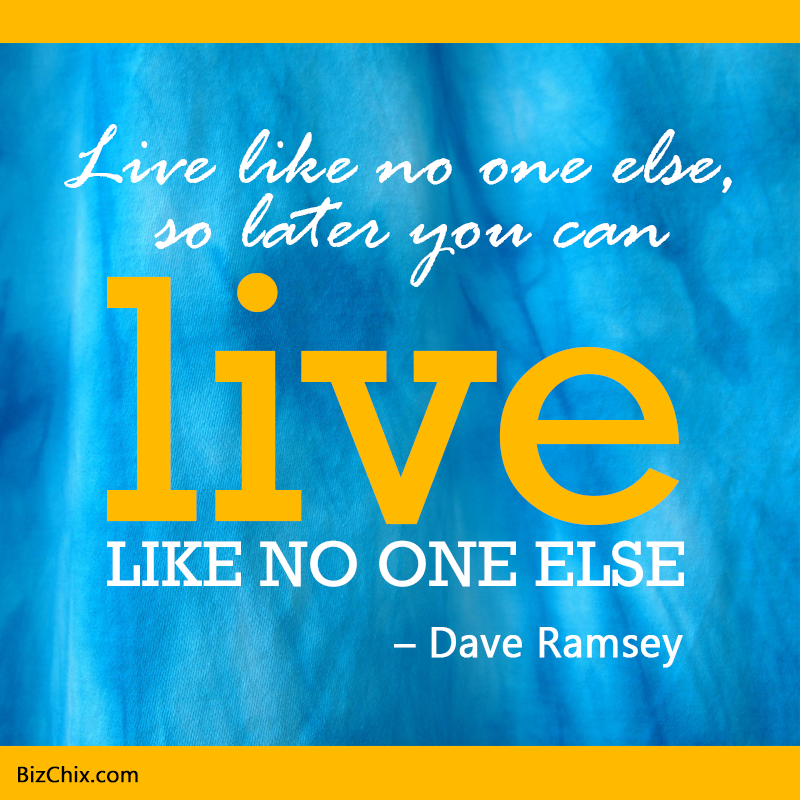This is the second post in a series on how to finance your travel dreams (you can read the first post, "Changing Priorities," here). Whether you're working a minimum-wage job, have a comfortable income, are burdened with heavy debt, or just have a few small loans to pay, the principles in this series can be applied to almost every category. As someone who has been able to finance trips to Europe in cash while working minimum wage jobs or while a spouse was unemployed, believe me, this is something you can achieve if you make it a priority. It's just a matter of time.
Changing Your Priorities | Establishing a Budget | Sticking to the Plan
Changing Your Priorities | Establishing a Budget | Sticking to the Plan
***
Turning Pennies Into Memories
Step 2: Establishing a Budget
There are many free online tools available for establishing a budget, but I'm a big fan of the Dave Ramsey Financial Peace plan. Dave Ramsey is a big proponent for living within your means, cutting out any and all debts, and doing so by living frugally (sometimes painfully so) until you're debt-free. I developed the unofficial Thrifty Gypsy motto of "Live within your means so you can travel beyond your dreams" from principles learned in the Dave Ramsey program.
First, identify your monthly income amounts. That should be pretty easy. Then, recognize the difference between "needs" and "wants." I want to buy a tall double chocolate chip frappuccino from Starbucks every day, but it is certainly not a need. So when creating a budget, I begin by listing the bare necessities along with the amount due each month:
- Rent/Mortgage
- Utilities (electricity, water, etc)
- Insurance (health, car, life, etc)
- Groceries
- Outstanding debts (car payment, credit card, etc)
- Tithing
- Savings
Yes, your list of necessities should include savings. I advocate budgeting for savings from the get-go instead of using the "just put whatever's left over into savings" method. Even if it's just a modest amount, put yourself in the habit of saving a certain percentage or dollar figure at the beginning of the month.
The list of necessities will vary from person to person. Create your itemized list and indicate the monthly amount owed beside each. From my experience, the grocery item is where we hemorrhage the most money, and where we have the greatest opportunity to manage how much we spend. If you have no idea how much you spend on groceries in a given month, make an educated guess based off your bank account transactions and plan to fine-tune and control this amount in future months once you have more data on your spending.
Your budget* should now look something like this:
Now that you've identified the basic needs, there are a few other things you should budget for that aren't quite in the "wants" category but aren't expenses that appear as regularly as the others. These things can include:
Your budget* should now look something like this:
 |
| This budget is not reflective, indicative, or in any way a representation of my own personal monthly income. Please see further clarification at the end of this post. |
Now that you've identified the basic needs, there are a few other things you should budget for that aren't quite in the "wants" category but aren't expenses that appear as regularly as the others. These things can include:
- Personal property tax (car, house, etc)
- Christmas/birthday gifts
- Mechanic bills
- Clothing
- Vet bills
There is nothing more financially frustrating (or even devastating) than receiving an unexpected set-back like a car repair bill or realizing on a rainy day that the soles of your shoes are rather hole-y these days. That's why every month you should be setting money aside for categories like clothing, personal property tax, and yes, Christmas and birthday gifts. Even if you're only able to set aside $10 per paycheck for each category, that squirreled-away money will accumulate and help take the edge off an unexpected bill's bite down the road, making you less likely to dip into savings or run into the red. This money can either be set aside in a bank account or in the form of cash put into separate envelopes and stashed somewhere safe (both from break-ins or from you dipping into it for other reasons!).
It's time to take a closer look at your debts, specifically items such as a credit card payment or a car payment. You need to get rid of them. If you were to read the fine print and actually calculate how much you're paying in interest, you would find that the $5 Starbucks drink you put on the credit card and didn't pay off before interest accrued could cost you as much as $5.90 (at 18% interest). While that may not seem like a lot, what about that bedroom set you "just had to have" and you put on your card for $500? After one month of not paying it off, that bedroom set cost you $590. If you didn't pay anything beyond the minimum payment for one year (even without putting anything else on the card!), that amount will cost you more and more until you've spent double or triple the list price. Suddenly that bed isn't as comfy as it used to be...
Plan to pay off your debts as quickly as possible, starting with the lowest balance. While it might seem "smarter" to tackle the debt with the highest interest rate first, you'll find that paying off a debt gives a well-needed emotional boost to continue tackling the higher balance accounts.
Now that you've identified income, regular expenses, irregular expenses, and made a plan to eliminate your debt, what does that leave you? Well if you have anything left over, you could budget for your "wants" or you could put more money into savings.
If there's nothing left, good job! You've told your money where you want it to go, and your income matches your expenses to the penny (including the "expense" of saving)! If you have funds left over, that's even better! Put all "left-over funds" into savings. You've now made savings a priority both at the beginning and end of the month.
It's time to take a closer look at your debts, specifically items such as a credit card payment or a car payment. You need to get rid of them. If you were to read the fine print and actually calculate how much you're paying in interest, you would find that the $5 Starbucks drink you put on the credit card and didn't pay off before interest accrued could cost you as much as $5.90 (at 18% interest). While that may not seem like a lot, what about that bedroom set you "just had to have" and you put on your card for $500? After one month of not paying it off, that bedroom set cost you $590. If you didn't pay anything beyond the minimum payment for one year (even without putting anything else on the card!), that amount will cost you more and more until you've spent double or triple the list price. Suddenly that bed isn't as comfy as it used to be...
Plan to pay off your debts as quickly as possible, starting with the lowest balance. While it might seem "smarter" to tackle the debt with the highest interest rate first, you'll find that paying off a debt gives a well-needed emotional boost to continue tackling the higher balance accounts.
Now that you've identified income, regular expenses, irregular expenses, and made a plan to eliminate your debt, what does that leave you? Well if you have anything left over, you could budget for your "wants" or you could put more money into savings.
If there's nothing left, good job! You've told your money where you want it to go, and your income matches your expenses to the penny (including the "expense" of saving)! If you have funds left over, that's even better! Put all "left-over funds" into savings. You've now made savings a priority both at the beginning and end of the month.
And that, my friends, is how you take another step towards debt-free living and (ultimately) more travel experiences. Let's summarize:
- Recognize the difference between "needs" and "wants."
- Create a budget where "needs" come first and savings are included in your "needs."
- Identify irregular expenses and set aside funds in the budget to be prepared for these expenses when they occur.
- Place left-over funds into savings in the event of a surplus, or adjust your savings expectations in the event of a deficit.
- Practice self-control; put your budget plan into motion.
* For the sake of my own personal financial privacy and that of my husband, all example budgets shown in this post are completely fake. The only resemblance it bears to my personal budget lies in the naming of individual line items and (in some cases) the percentage ratio of a particular expense category to the faux income amounts.
 |
| Linking up for #WeekendWanderlust! |






I would add setting up a separate bank account for the savings.
ReplyDeleteAs soon as you get paid transfer your saving amount into that account, then never EVER carry the card that is attached to that account. It is savings not spending.
I like your way of doing it, we ususally do something similar.. I'm even thinking of starting a mini version with my grocery money.. to see where it's going and how I could save on food! You should include a mock version in google docs format so that we your readers can save a copy and use it (Wann du willst)!
ReplyDeleteVery cool post! I was sucking at this budgeting thing earlier this year and a friend of mine who is an accountant created a spreadsheet for me which has helped 100%! I do try to keep things to necessity without restraining myself too much - if there are parties at work I will go to dinner with them, or buy a bottle of wine every week or so. I think I can't stop myself from living, but trying to keep tight forces you to reevaluate so much and it certainly has helped me a lot! I saved 2000 in the past 2 months along thanks to that!!
ReplyDelete